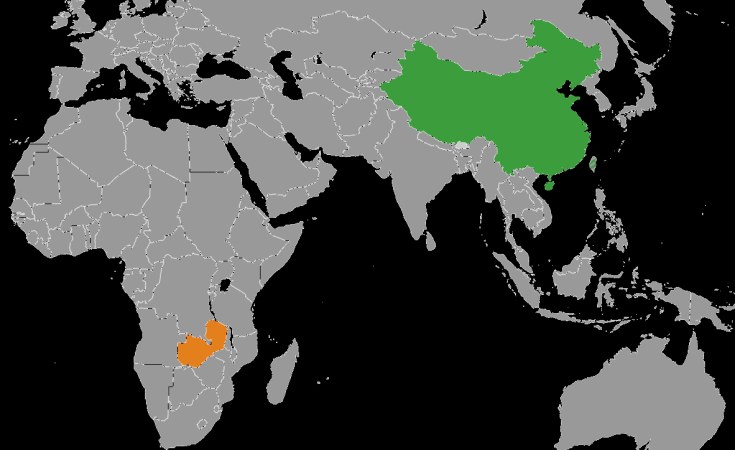Favourable assessments have dropped by 30 percentage points since 2014.
Key findings
- Four in 10 Zambians (42%) said the economic and political influence of China on their country is "somewhat positive" or "very positive," matching favourable assessments of U.S. influence and surpassing those of Japanese (31%) and European Union (28%) influence. Only small minorities saw the influence of these foreign powers as negative, while large proportions didn't offer an assessment. o Favourable assessments of China's economic and political influence on Zambia have dropped by 30 percentage points since 2014.
- Half (50%) of citizens said China's economic activities have "some" or "a lot" of influence on Zambia's economy, a decline of 25 percentage points compared to 2014.
- In Afrobarometer's 2020 survey, more than half (53%) of Zambians were aware that their country received loans or development assistance from China.
- Among those who were aware of China's assistance, an overwhelming majority (87%) said Zambia had borrowed too much from China.
- Between 2014 and 2020, China's popularity as a model for Zambia's development declined by 10 percentage points, from 32% to 22%, while the U.S. model gained 8 points to claim the top ranking.
China's relationship with Africa generates never-ending debate. Proponents of this relationship classify China's engagement with Africa as deep, broad, and valuable. They point to the fact that China is Africa's largest trading partner and bilateral creditor as well as a critical source of infrastructure investment (Economist, 2022; Tsoka, 2020; Hanauer & Morris, 2014). In contrast, critics consider the relationship unequal and exploitative, motivated by China's quest for export markets and for natural resources to meet its growing production and consumption needs. They accuse Chinese investors of abusing and disrespecting local workers, turning a blind eye to human-rights violations, accepting a lack of democracy, participating in corruption, and pushing African countries into a debt trap (Binnatli, 2019; Hanauer & Morris, 2014).
Dating back to the pre-independence period, the Sino-Zambian relationship grew increasingly strong through the early 2000s, resulting in a wide range of high-profile Chinese supported projects in Zambia. These include the Tanzania-Zambia Railway (TAZARA), Levy Mwanawasa Stadium, Heroes Stadium, conference facilities in the government complex, Levy Mwanawasa Hospital, a storage system for maize, the China-Zambia Friendship Farm, and massive road infrastructure development (Mwiinga & Wilma, 2019).
However, since the New Dawn government came to power two years ago, presidential references to China as an important friend have declined, as has the number of prominent Chinese-supported ventures or developments (Chatham House, 2022).
How do average Zambians see their country's relations with China? Findings from recent Afrobarometer surveys show China tied with the United States in positive assessments of their influence on Zambia. But Zambians' perceptions of both the extent and the value of Chinese influence have declined sharply over the past eight years.
Among the slim majority of citizens who were aware of Chinese assistance to Zambia, most believed their country had borrowed too heavily from China.
Between 2014 and 2020, the United States passed China as Zambians' preferred model for their country's development.
Edward Chibwili is the national investigator for Zambia.


